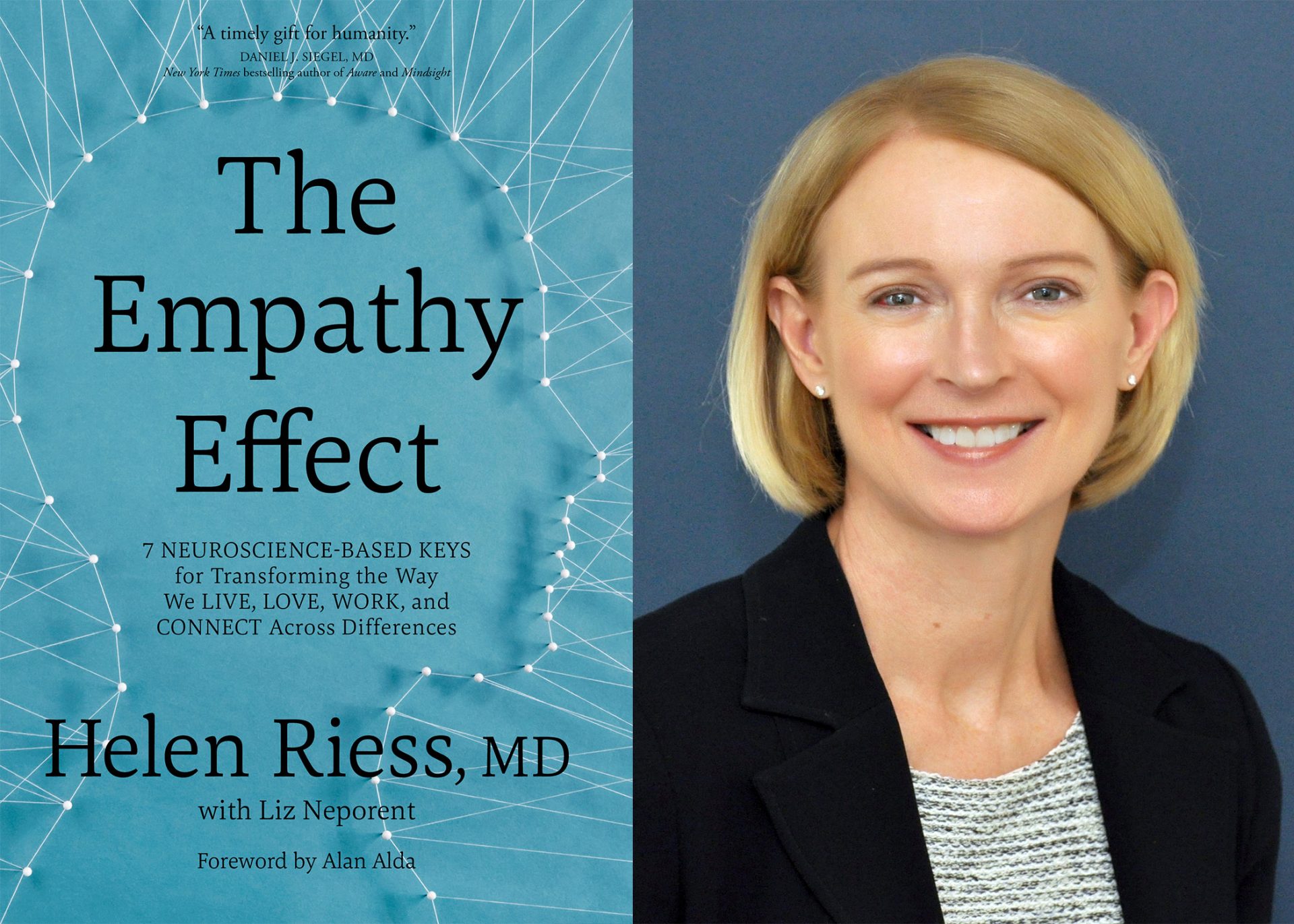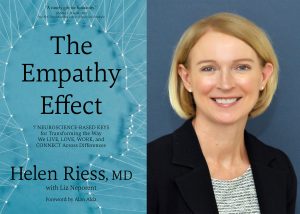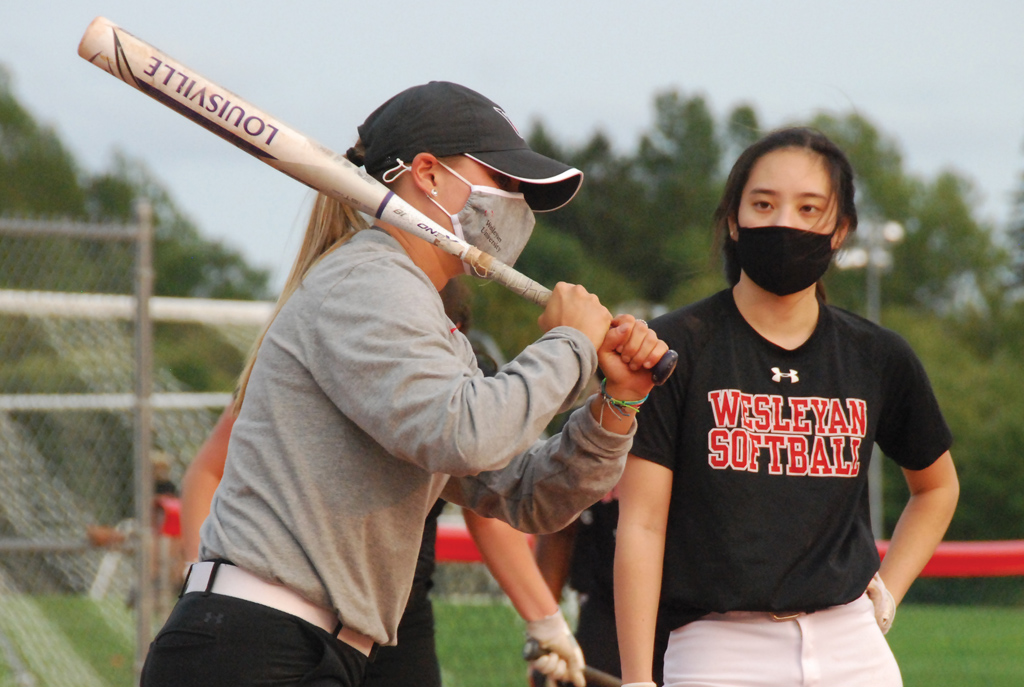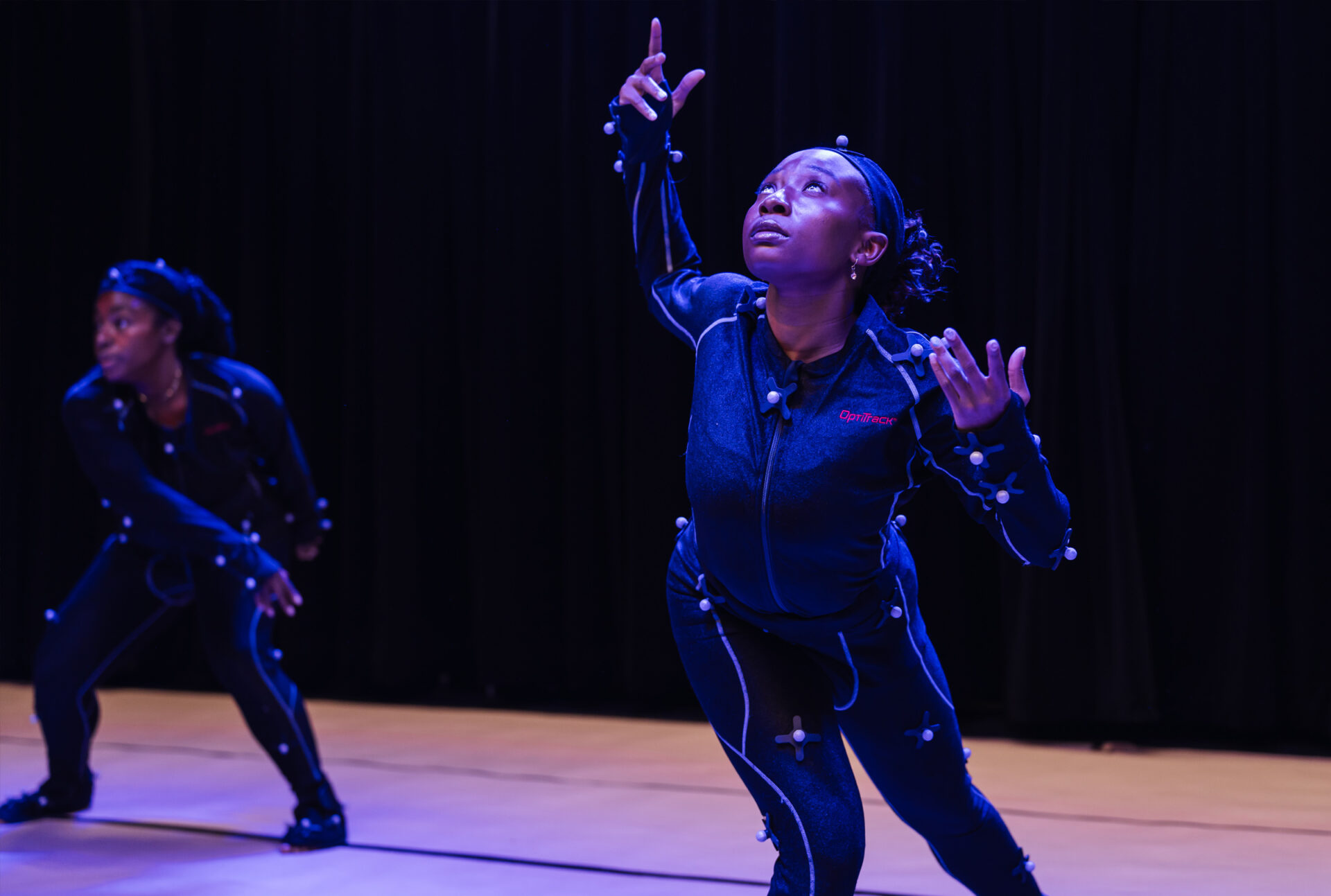7 Transformative Keys to Increasing Empathy

Using neuroscience-based research and an acronym, Helen Riess ’78, MD, teaches E.M.P.A.T.H.Y.® as a way to improve our lives, our schools or workplaces, and maybe even the world. In the Q&A following, she also discusses empathic responses to the world today and offers recommendations on art and literature to heighten our emotional well-being.
“There are two important reasons why your brain is primed to experience the pain of others: to teach you what to avoid and to motivate you to help the injured person, whether their pain is physical, psychological, emotional, or some degree of all of these,” writes Helen Riess ’78, MD, in The Empathy Effect: 7 Neuroscience-Based Keys for Transforming the Way We Live, Love, Work, and Connect Across Differences (SoundsTrue, 2018).
As associate professor of psychiatry at Harvard Medical School with a postgraduate medical education fellowship at Harvard, Riess set about developing a training program that would allow people to increase their skill in empathetic communications. She summarizes the facets of this program, “Seven Keys of E.M.P.A.T.H.Y.® ,” using the word as an acronym for: Eye contact, Muscles of facial expression, Posture, Affect, Tone of voice, Hearing the whole person, and Your response. The founder of the Empathy and Relational Science Program at Massachusetts General Hospital, Riess also now offers her trademarked program through Empathetics, Inc., the company she cofounded to teach individuals and organizations.
In her book—with a foreword by Alan Alda—Riess outlines the training she has developed, using clear, conversational prose. Both a sensitive tutorial and thought-provoking cultural critique, Riess’s book is a must-read for those who strive to bring harmony and greater satisfaction to their personal and professional relationships.

In conversation with Wesleyan, Helen Riess ’78, MD, author of The Empathy Effect: 7 Neuroscience-Based Keys for Transforming the Way We Live, Love, Work and Connect Across Differences, offers advice, techniques, and art that encourages empathic connections.
Q: Why would we want to be empathetic? Wouldn’t it be exhausting?
A: It’s a myth that empathy necessarily creates a net negative of energy expended on another. Experiencing empathy is actually a mutually enlivening experience: it feels good to help others, and that’s why empathy has survived as an inborn trait. If one is exhausted or depressed, showing empathy can be challenging, but by practicing self-empathy we fuel our resources to care about others, which actually makes us feel better, too.
Q: What are the biggest roadblocks to empathy in our country today?
A: Some powerful leaders have created new norms that condone “othering” people. The job of leaders is to unify and work across differences. Divisive leadership condones mistreatment of others, which civil societies have worked so hard to challenge and eliminate. Another roadblock is the use of technology to diminish important debates to mere caustic sound bites through tweets and texts. Technology could be used as a tool to unite us, rather than divide us.
Q: What would an empathic campus look like and what steps bring us toward that goal?
A: An empathic campus would be an inclusive place where physical spaces provide a place for students and faculty to “hang out” together. Opportunities to hear from people of all backgrounds would be encouraged, and hate speech would not be tolerated. An empathic campus would provide education on conscious and unconscious bias for students and faculty and be open about the fact that mistakes will be made. It would foster dialogue, and while assuming that most mistakes are unintentional, encourage people to hold themselves accountable. Such a campus would appreciate that we are all coming into awareness of how very ingrained biases have been in our culture.
Q: If you were a parent whose child was cyberbullied, what steps would you take?
A: As a parent of a college-age student, I’d first take steps to ensure the safety and health of my child and try to learn why they became a target as well as be sure they get all the support and safety they need. It’d be important to report the incident to the school administrators and learn if other students were victims of the same attacks. Finding the person(s) engaging in the cyberbullying would be a priority in trying to understand what’s fueling the behavior; it’d be important, too, to see if they need help being understood, as well as help understanding the possible causes and effects of their behavior.
Q: You describe the arts as inspiring empathy. Do you have favorites that were important in your work and/or personal development?
A: The arts are the broadest way that societies can bridge gaps between people and create shared experiences of one another’s plights. There are so many pieces that bring the reader into the experience of people they may never be able to talk with firsthand. Here are just a few of my favorites:
Books:
A Man Called Ove by Fredrik Backman
A Prayer for Owen Meany by John Irving
Waking up White by Debby Irving
Educated by Tara Westover
To Bless the Space Between Us by John O’Donohue
Descartes’ Error by Antonio Damasio
Poems by physician/poets William Carlos Williams and Rafael Campo.
Movies:
Milk
Schindler’s List
The Killing Fields
Music:
Bach’s Brandenburg Concertos and Mass in B Minor
Brahms’s Trio in B Major
The soundtrack to Hamilton
All the plays by August Wilson.


